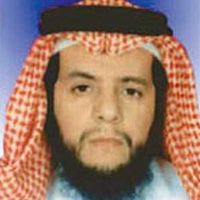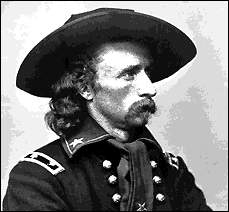 As many as 14 suspected terrorists, including most wanted Al-Qaeda leaders, have been killed and five others have been wounded in three days of fierce clashes, which ended here yesterday, the Interior Ministry said. Crown Prince Abdullah commended the bravery displayed by the security forces in their fight against terror. "Our security men will remain a thorn in the throat of every aggressor who tries to undermine the country's security and stability," he said in a message to Interior Minister Prince Naif. "Until the time of preparing this statement, 14 terrorists have been killed and five others have been wounded and arrested," a ministry official said, adding that one gunman had surrendered to police. As many as 14 suspected terrorists, including most wanted Al-Qaeda leaders, have been killed and five others have been wounded in three days of fierce clashes, which ended here yesterday, the Interior Ministry said. Crown Prince Abdullah commended the bravery displayed by the security forces in their fight against terror. "Our security men will remain a thorn in the throat of every aggressor who tries to undermine the country's security and stability," he said in a message to Interior Minister Prince Naif. "Until the time of preparing this statement, 14 terrorists have been killed and five others have been wounded and arrested," a ministry official said, adding that one gunman had surrendered to police.
The official said the security forces had successfully completed their mission in Al-Rass, 320 km northwest of Riyadh, where the clashes started on Sunday. Only 14 security men were wounded and hospitalized, the official said. Most of them, except two, sustained minor injuries, he said, adding that the injuries sustained by the two were not life threatening. Earlier, Interior Ministry spokesman Brig. Mansour Al-Turki said security forces were still combing the area after the end of the battle to evacuate casualties and collect evidence. It was the longest and toughest battle with the terrorists who used rocket-propelled grenades, hand grenades and machine guns against security forces.
It was unclear whether Saleh Al-Oufi, commander of Al-Qaeda in the Arabian Peninsula, was among the killed in the Al-Rass battle. However, some sources said Saud Al-Otaibi, a Saudi, and Abdul Kareem Al-Majati, a Moroccan, both on the most wanted list, were among the dead. One militant belonging to the Onaiza cell surrendered to authorities, the sources said. The faces of three dead terrorists were disfigured beyond recognition and their true identity can be established only after DNA tests, a source said. Security forces were cleansing the scene at the time of going to press and the sound of helicopters disturbed the tranquility of Al-Rass city that was awake for three nights. "Thank God the siege is over. It is a great moment to see these terrorists vanishing from our sights," said Abdullah Al-Ruwais, a resident of Al-Rass. |
 The whereabouts of the wife of deceased terror suspect Younes Ibrahim Al-Hayari, a Bosnian woman, and her child are still unknown. They both accompanied him on his journey that started in Saudi Arabia to perform the Hajj pilgrimage in February 2001, during which he decided not to return to his country of origin, and to join Islamic militant groups.
The whereabouts of the wife of deceased terror suspect Younes Ibrahim Al-Hayari, a Bosnian woman, and her child are still unknown. They both accompanied him on his journey that started in Saudi Arabia to perform the Hajj pilgrimage in February 2001, during which he decided not to return to his country of origin, and to join Islamic militant groups. 
 The Interior Ministry yesterday confirmed the death of
The Interior Ministry yesterday confirmed the death of  Life returned to normal to the town of
Life returned to normal to the town of  As many as 14 suspected terrorists, including most wanted Al-Qaeda leaders, have been killed and five others have been wounded in three days of fierce clashes, which ended here yesterday, the Interior Ministry said. Crown Prince Abdullah commended the bravery displayed by the security forces in their fight against terror. "Our security men will remain a thorn in the throat of every aggressor who tries to undermine the country's security and stability," he said in a message to Interior Minister Prince Naif. "Until the time of preparing this statement, 14 terrorists have been killed and five others have been wounded and arrested," a ministry official said, adding that one gunman had surrendered to police.
As many as 14 suspected terrorists, including most wanted Al-Qaeda leaders, have been killed and five others have been wounded in three days of fierce clashes, which ended here yesterday, the Interior Ministry said. Crown Prince Abdullah commended the bravery displayed by the security forces in their fight against terror. "Our security men will remain a thorn in the throat of every aggressor who tries to undermine the country's security and stability," he said in a message to Interior Minister Prince Naif. "Until the time of preparing this statement, 14 terrorists have been killed and five others have been wounded and arrested," a ministry official said, adding that one gunman had surrendered to police. Saad B. Al-Matrafi, saad@arabnews.com
Saad B. Al-Matrafi, saad@arabnews.com